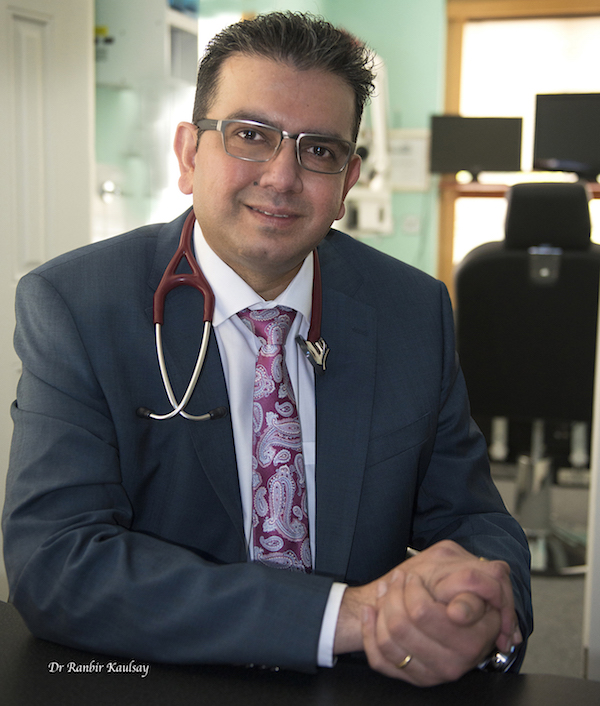
Dr Ranbir Kaulsay addresses the European Parliament in Brussels about improving Anaphylaxis treatment standards in Europe and particularly in Ireland
Saving Lives – responding to the public health challenges of allergies and anaphylaxis
Mairead McGuinness MEP, Vice President of the European Parliament and member of the Committee on the Environment, Public Health and Food Safety, will host a breakfast briefing on the public health challenges of anaphylaxis at the European Parliament on 22 November.
Ms McGuinness hosts the event on behalf of Medicines for Ireland, the representative body for the Irish generic and biosimilar medicines industry.
The event, a high-level, multi-stakeholder breakfast briefing, will discuss the public health challenges around anaphylaxis and access to Adrenaline Auto-Injectors (AAIs) in Europe, with a particular focus on examples of good policy practice as demonstrated by Member States, including Ireland.
Our speakers include Ms Antonella Muraro, Past-President of EAACI and current chair of the EAACI Anaphylaxis Task Force; Professor Dr Margitta Worm, Head of Allergy and Immunology at Charite Hospital in Berlin; and Dr Ranbir Kaulsay, Consultant Allergist at Bon Secours Hospital, Dublin, Ireland.
Food allergy is a growing public health concern affecting more than 17 million people in Europe alone. Moreover, food allergy is a leading cause of anaphylaxis in children 14 years and younger. Research indicates that there is a 7-fold increase in hospital admissions for severe allergic reactions in children in the last 10 years. While anaphylaxis is considered uncommon, figures may be underestimated due to under-reporting of incidence. What is clear, however, is that the mortal threat to life as a direct consequence of anaphylaxis is significant.
In an emergency scenario, ease of accessibility and a rapid response can be a matter of life and death. Countries such as Ireland, among others, have taken a positive step in this direction by expanding access to AAIs in the case of Ireland, through legislation. We believe that all EU Members States must now work together in ensuring greater access to adrenaline in emergency situations.
This event will consider, debate and examine how to increase awareness of and access to AAIs in practice, and the roles that must be played by all advocates legislators, policymakers, healthcare professionals and others to improve the health and quality of life of food allergy sufferers.

We will call on those in attendance to bring the message of a unified policy on the prevention and management of allergies and anaphylaxis, as well as enhanced access to AAIs back to their national governments.
To find out more or register your attendance, please contact Nuala at info@medicinesforireland.ie.
At an event at the European Parliament this week, Medicines for Ireland, the representative association for generic and biosimilar suppliers in Ireland, will highlight to legislators, policy makers and healthcare stakeholders a unified policy on allergies and anaphylaxis could result in less admissions to hospital and decrease the threat to life for sufferers as a direct consequence of anaphylaxis.
Hosted by Mairead McGuinness MEP, Vice-President of the European Parliament, the event will bring together leading experts to review the existing policy environment in respect of allergies and anaphylaxis, and debate a number of core reforms that will better improve the lives of allergy sufferers, including enhanced access to adrenaline auto-injectors (AAIs) in an emergency.
Food allergy is a growing public health concern, affecting more than 17 million people in Europe. It is a leading cause of anaphylaxis in children aged 14, with research indicating a sharp increase in hospital admissions for anaphylaxis in children 7-fold over the last 10 years.
Patient advocacy groups argue that the prescription of emergency medication must be encouraged to protect allergy sufferers who are at risk of a severe allergic reaction or anaphylaxis.
However, in most European countries a prescription is required to carry an AAI and is only usually prescribed once someone has suffered a severe allergic reaction.
Medicines for Ireland, as part of its “Responding to public health challenges of anaphylaxis through public policy” event, will debate why an EU-wide strategy is needed to improve the health and quality of life of allergy and anaphylaxis sufferers, including better access to AAIs.
We know that in an emergency, rapid access to medicine is a matter of life and death,said Owen McKeon of Medicines for Ireland. “That there is not a unified policy on the prevention and management of allergies and anaphylaxis, despite food allergy affecting more than 17 million people and growing, should be of genuine concern to healthcare professionals and national health systems across Europe.
“We are calling on all advocates legislators, policy makers, healthcare professionals and patients – to implement the necessary reforms and regulation that improves the health and quality of life of food allergy sufferers. We have seen first-hand that the wider availability of adrenaline auto-injectors (AAIs) in the community is achievable. However, without adequate policy, prevention and treatment is varied and access to adrenaline in an emergency is limited.”
Countries like Ireland are leading the way when it comes to better access and wider availability.
This follows the death of Dublin teenager in 2013, when the former Minister for Health Leo Varadkar now Irish Prime Minister introduced legislation that broadened the capacity for public access to adrenaline in emergency situations by allowing trained members of the public to administer AAIs where required.
“We believe that all Member States should follow Irelandâ’s lead in protecting allergy sufferers who are at risk of a severe allergic reaction or anaphylaxis,” said Mr McKeon. “This starts with implementing a number of core reforms, which we will consider, discuss and debate with international experts at our event this week.”
Among those speaking at the event include Professor Dr Antonella Muraro, Past-President of the European Academy of Allergy and Clinical Immunology (EAACI).
Also speaking is Professor Dr Margitta Worm, Head of Allergy and Immunology at Charitâ Hospital in Berlin, and Irish consultant allergist, Dr Ranbir Kaulsay of the Bon Secours Consultants Clinic and Beacon ENT & Allergy Clinic.
Medicines for Ireland’s broad objective is to support pathways for policymakers and clinicians to work together to develop proposals to advance the core objective of increasing access to emergency medicines to those who need it most, when they need it most.
Medicines for Ireland, the representative association for generic and biosimilar suppliers in Ireland, has cautioned that a promised new National Biosimilar Policy may lead to no meaningful change.
The association has expressed concern that the State’s existing medicine pricing agreement with IPHA is protectionist, claiming that its terms, including an enforced price entry point, restrict competition in the medicine market, in particular for biosimilar over biologic medicines.
The Department of Health completed a public consultation on biosimilars in September and Medicines for Ireland has called on the Department to resist pressure from vested interests to maintain the “status quo”.
The association has highlighted the current “poor uptake” of biosimilars, claiming that this has resulted in a negative impact on affordability and access to medicines for Irish patients.
The association stated: “Biosimilar medicines, which are subject to the same regulatory checks and standards as biologics, have had negligible uptake in the Irish market. In some cases, as low as 0.2 per cent market share”.
Medicines for Ireland has criticised the Department of Health’s failure to create the conditions for competition in the market and the absence of government policy to shape the market.
Commenting on the submission, Jeffrey Walsh, Joint Chairperson of Medicines for Ireland and Commercial Manager, Pinewood Healthcare, said: “Biosimilar medicines have been around for over 10 years now, yet we‘re not seeing any meaningful penetration of the market here. Patients are missing out unfairly in Ireland.
”That has to be a cause for alarm. While we welcomed the Department’s public consultation and commitment to formulate a national policy, we are increasingly concerned that nothing will materialise from this process. All the while, significant savings which could ensure increased and faster access to medicines for Irish patients, are passing us by“.

He continued: “Exacerbating the dearth of a government policy to drive a viable market in the Irish market, is the State’s own pricing agreement with the Irish Pharmaceutical Healthcare Association, whose members represent the biologics industry here. This provides for a 30 per cent drop in price on biologic medicines when an equivalent biosimilar medicine enters the market.
“While this discount appears attractive at first, in reality, it is creating a false and, inevitably, closed market. It ensures that the dominant position of biologics is maintained as biosimilars either do not launch here at all or fail to secure any real increased patient uptake, which may inevitably lead to their withdrawal from the market”.
According to Sandra Gannon, Joint Chairperson of Medicines for Ireland and General Manager of Teva Pharmaceutical’s Ireland:
“This blocker clause is sending out the message to biosimilar companies that Ireland is closed for business. The long-term implications of this ill-thought out approach will have negative knock-on effects, particularly for patient access. She stated: The 30% discount was sewn into the national medicine pricing agreement in an attempt to block genuine competition. Incumbent biologic manufacturers dominant in the Irish market are actively blocking change, while ironically, also calling on the Minister to provide access to new medicines!
“This attempt to block now extends to a proposal in IPHA’s biosimilar consultation submission document to offer the State an automatic discount, without even a biosimilar competitor in the Irish market, going even further that their existing agreement with the Department of Health”.
In its consultation submission to the Department, Medicines for Ireland has recommended measures to increase biosimilar uptake, including compulsory biosimilar prescribing quotas or gain share schemes whereby hospitals which switch to biosimilars can share in savings realised.
“We need to move beyond a position of protecting higher cost medicines such as biologics when more affordable but equally safe alternatives are available, to a position whereby we are actively supporting measures which attracts biosimilars to the Irish market, increases their usage by patients and creates budget to pay for new medicines”, concluded Ms. Gannon.
This article was first published here on 10 November 2017.
